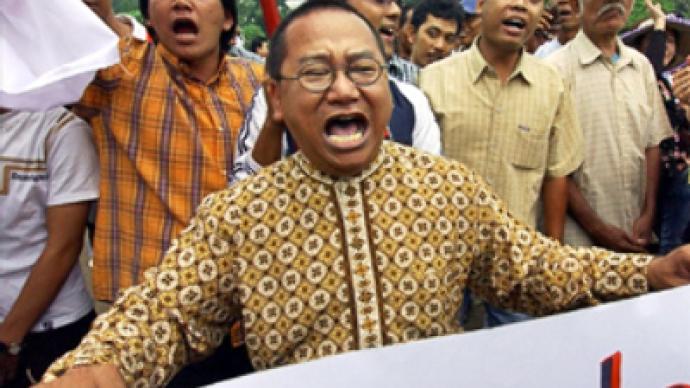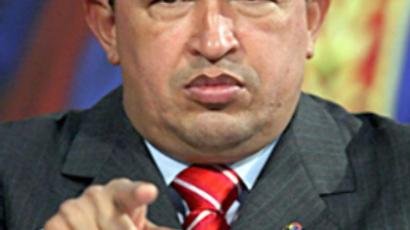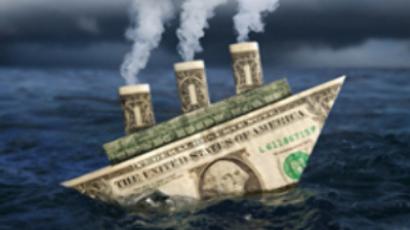Global financial controls and global socialism

Let’s remember the Asian financial crisis of 1997-98. Policies called ruinous ten years back are our only hope today. Throwing money at the crisis can only work if everyone simultaneously does the throwing – and that lea
Ten years ago Thailand turned from a Young Tiger of Southeast Asia into a trigger for a financial crisis that spread around Asia in the summer – fall of 1997, flowed on to Europe in 1998 and hit Russia in the fall of that year.
It all started with several U.S. hedge funds, working with best interests of their clients at heart, ‘accidentally’ crushing the Baht, the Thai national currency. The Thai financial bubble by that time was ripe and ready, only waiting to be pricked. It was born and raised in the housing and business construction industry, with the financial sector addicted to cheap foreign credit.
The Baht started falling and loan payments in U.S. currency moved beyond the scope of many habitual users, and the whole thing started falling apart.
Indonesia followed Thailand into the abyss, then other ASEAN nations, then Korea and Japan suffered their share of the continental calamity.
I think today we can, with a measure of certainty, call that a grand general rehearsal of what we are experiencing today. The Global financial crisis or, rather, the very beginning of one.
What happened then, ten years ago, after the World woke up to the dangers of the Asian crisis?
A few months into the event the IMF emergency crews arrived on the scene and, as the IMF later admitted, made things somewhat worse than before… The positive side of it all was that peoples of Asia refused to be intimidated by the crisis and resisted as much as they could. In those countries where there still was a significant agricultural sector, it absorbed scores of farmers’ relatives who fled from the cities seeking means for survival. In the cities retail establishments and eateries flew fliers saying ‘prices of the IMF Era’. The IMF money came in handy, helping to save the remnants of the financial systems of whole countries, but at the cost of those countries sacrificing a good chunk of sovereignty, and partly losing control over their own financial institutions.
But in the end it was what remained of the real sector of the Asian economies – mainly the enterprises that were not heavily dependent on foreign credit, that kept the economies from drowning.
If we need to learn the lessons of that crisis to fight the current one, it may be interesting to look at the policies used to counter the calamity at different stages. That brings us back to Thailand as the country from which the whole thing started.
When the crisis hit, Thailand was run by General Chavalit Yongchaiyut’s Cabinet. At first the government decided to help out the banks with direct infusions from the national hard currency reserve. It helped for a while but General Chavalit understood quite well that in the long run it wouldn’t save the economy. Having received no clear answer from the U.S. he turned for help to China, and China, in quite a loose form, promised loans in Chinese currency and U.S. dollars in the amount sufficient to bail out the Baht.
The government continued throwing hard currency at the crisis with a clear understanding that it was engaged in a race against time. Finally China, after weeks of thorough consideration, had to go back on its promise – which had not been a firm one in the first place. Helping out Thailand could have led to China’s own suffering from the crisis, which, in the end, the Asian giant managed to avoid.
By that time Thailand had no hard currency reserves left, General Chavalit had to go and the Baht plummeted from 27 down to 55 per U.S. dollar.
I was there at that time, covering Southeast Asia for Izvestia daily. I remember well how everybody blamed Chavalit for wasting the nation’s hard currency reserves and rejecting help from the IMF. The new government, a coalition dominated by the Democrat party, called an IMF team in immediately after the election. The IMF was ready to lend money but for a price: Thailand had to adopt softer laws on foreign business and transfer the assets of the ‘bad’ banks and indebted industrial enterprises to their foreign creditors.
I wonder now, was Chavalit really wrong? Well, I mean, aren’t we all doing the same now? Throwing money at the crisis on a global scale?
Ten years ago the idea of liberal Capitalism was sacrosanct. Infallible. It took two years of IMF-inflicted liberalistic reforms for the people, and most importantly for the Thai middle class, to understand that government controls have their use, especially in the times of crisis. The Democrat party which focused its efforts on macro-economic problems and hoped that the market would solve all the others by itself, lost most of its influence in those years and hasn’t gained it back until today. That is how the oldest political party in Thailand lost the general election of 2001.
During the ‘IMF Era’ the Thai public listened more to the advice of Thailand’s revered Monarch, King Bhumibol Adulyadej than to the pontifications of IMF-sponsored economic gurus. The King introduced the idea of ‘sufficiency economy’. His Majesty said that Thailand didn’t need to be anybody’s ‘tiger’ if the status involves such a great dependence on the outer world that threatens the livelihoods of the people.
The next government, that of Dr. Taksin Chinavat, which consisted of industry tycoons, technocrats and former Communists, came to power in a landslide victory of Taksin’s party, Thai Rak Thai (Thais Love everything Thai). It was the first time, in the history of Thai democracy, when a single party won a three-quarter majority in the parliament.
I don’t want to touch on the corruption scandals that are associated with Dr. Taksin’s name today: all that is up to the courts to decide. What I want to say is that at least for its first four-year term his government managed to combine well-thought macro-economic policies with a range of social security-oriented programs and consistent support of the sufficiency economy at the grassroots level. That, most probably, was the right formula – partly Capitalist and partly Socialist in nature if not in name, that helped Thailand’s comeback as a fast-developing and modernizing economy.
Maybe that is what we are heading at right now? A global effort that would combine macro-economic controls, with a set of unified policies providing the security of livelihoods of a collective global ‘Joe the Plumber?’
The use of national ‘fat’ accumulated in the good years to fight off the crisis looks like a natural reaction of a biological organism extrapolated on political reality. But for the World it may only work if everyone loses his ‘fat’, in a proportion to his size, in a concerted global effort. It won’t work at all if one group of countries uses it and another group still markets the idea of a totally free market.
But if this idea succeeds, we will see the first ever act of actual global governance, and have a glimpse at what a global government will some day definitely be: a government of the Socialist Republic of the Earth.
Socialist in the sense that it solves social issues for the whole mankind on a permanent basis and controls the World market – only in times of trouble.
Evgeny Belenkiy, RT














